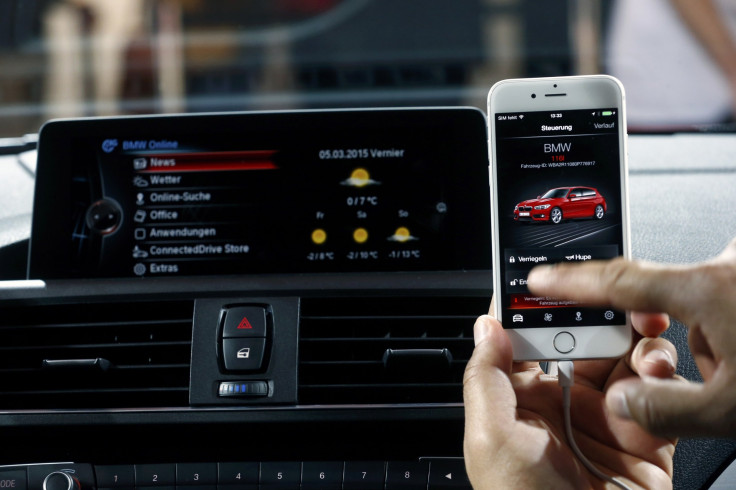Google, Apple Foray Into Autos Has Heads Of Volkswagen, Nissan Putting Out The ‘Welcome’ Mat

Top executives at some of the world’s biggest auto companies say they welcome efforts by Apple and Google to get into the car business. Speaking this week at the Geneva Motor Show, car company bosses are encouraging Silicon Valley to school them on the future of mobility.
“This could surprise you, but I welcome with open arms the interest of Apple, Google and others in the auto industry,” Martin Winterkorn, the head of Volkswagen Group, told Agence France-Presse from the floor of the show taking place through March 15.
This appears to be the sentiment (at least the one expressed publicly) of auto bosses reacting to news, first reported by the Wall Street Journal last month, that Apple has been working at a secretive Cupertino, California, facility on a car-related project.
Echoing Winterkorn’s comments, Renault-Nissan CEO Carlos Ghosn and Fiat Chrysler Automobiles chief Sergio Marchionne both said they think Google and Apple would be a benefit to the industry. Ghosn sees Apple and Google as potential “allies,” while Marchionne said the disruptive effect would ultimately benefit the industry in the long run.
Apple has not confirmed reports of its car project, but speculation revolves around two possibilities: that Apple is working on vehicular technology in a bid to become a player in future car functions like autonomous driving and high-tech dashboard interfaces, or that Apple is building an entire electric car from scratch.
In many ways the first possibility poses the bigger threat, because car companies would rather create their own vehicle technologies (from infotainment systems to self-driving hardware) than watch Apple take over the instrument panels of their cars. Consumers could wind up expecting an Apple-engineered environment, forcing automakers to give up some control and adapt their cars to use Apple-patented technology. The second possibility, building an Apple electric “iCar,” would be extremely expensive and lead to a car that occupies a niche luxury segment.
Last year, Google showed off a “cartoonlike” self-driving electric car that’s been tested on public roads. Google has claimed it will create a fleet of 200 test vehicles in Detroit sometime this year. Even so, Tesla CEO Elon Musk said in a conference call last year that the challenge in automaking isn’t so much developing new technology and making prototypes, it’s mass-producing the car.
“Making one of something is quite easy,” he told analysts in November, referring to delays in the upcoming Tesla Model X crossover SUV. “Making lots of something consistently that's going to last a long time is extremely hard.”
Similar to Musk, Silicon Valley could find itself learning as much about the industrial manufacturing of cars as it has to teach car companies about the future. In the meantime, auto bosses appear to be extending olive branches to Silicon Valley instead of pitchforks.
© Copyright IBTimes 2024. All rights reserved.












